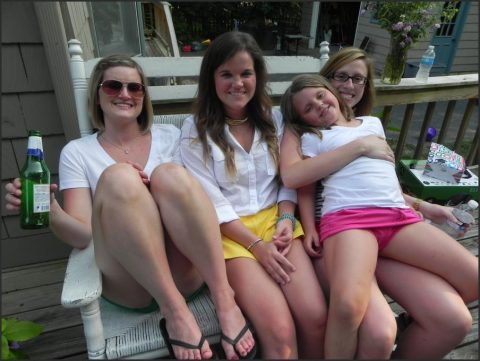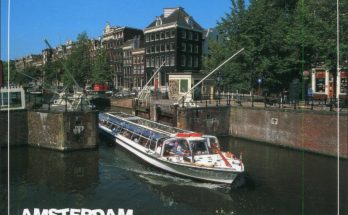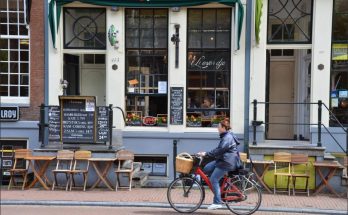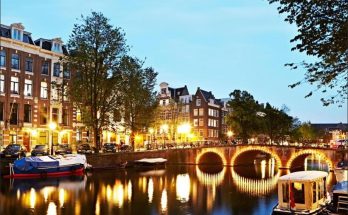Hollanders ashame of the name Dutch. Why should they be? Because it is used, they say, in so many derisive and derogatory phrases that give the nation a bad name. I deny that they do. A nation’s worth is appraised by its own actions, not by a foreigner’s abuse. Besides, most of those idioms have ceased to be current. Dutch courage, Dutch concert, Dutch defence, Dutch widow, have passed from the speakers’ lips to the pages of the dictionary.
Many of my readers may have to look there to find out what some of them mean. We don’t like to be called Dutchmen, these Hollanders tell their American friends, because your English ancestors poked fun at Dutchmen and everything Dutch. The best cure for that old sore is a little sense of humor. At the risk of getting in Dutch with my Dutch friends, I shall continue to call myself a native Dutchman.
Dutch is an ambiguous term. In America it also means German. That is, I admit, a more valid objection. But annoyance at the misuse of a good thing does not justify the cessation of its use. Would a housewife throw away a solid old breadknife, a family heirloom, because her little son used it to carve his name in the dining room table? She will always need a tool for cutting bread and she will use one that does cut.
And Americans will always need a word to call us by, and they will use the one that is easiest and least cumbersome to use. That happens to be the name Dutch, the very one that we gave to ourselves and to our language when the nation was in its infancy. Its antiquity entitles it to the Hollander’s love and respect, and instead of entreating the English-speaking world to desist from its use, he ought to be grateful to the English for having preserved in their language the original name of his own.
The Dutch themselves call their country Holland. They call it the Netherlands only when they write. There are Dutchmen, indeed, who resent the use of Holland as the name of the entire kingdom. Holland was, originally, the name of one province only, and inhabitants of other provinces protest against the use of a name which seems to imply that their own province is a part of the province of Holland.
Holland proper never forced its name upon the whole country. The whole country, and the outside world as well, adopted it at a period when, if it had not been for Holland, the Dutch Republic could not have survived. That the Netherlands exist at all as an independent nation is chiefly owing to Holland’s leadership in the crucial days of the Dutch fight for freedom; Dutchman and foreigner alike expressed their recognition of that truth by identifying the entire country with the province of Holland.
I have heard it said that to call the Netherlands by the name of Holland is just as absurd as to call these United States Missouri. The absurdity is in the equation. It is a common feature in all languages that the name of a part is used for the whole. When the weather turns rough at sea, the captain orders “all hands on deck.” He does not call his crew “feet,” or “ears,” or “mouths,” for in such an emergency it is the sailors’ hands that must do the work. It is the principal and most useful part that gives its name to the whole. If the inhabitants of the other provinces really feel themselves Netherlanders, they can not show the genuineness of that feeling more convincingly than by renouncing, as beneath their Netherlandish dignity, the petty provincialism that resents the use of the name Holland and Hollander.



